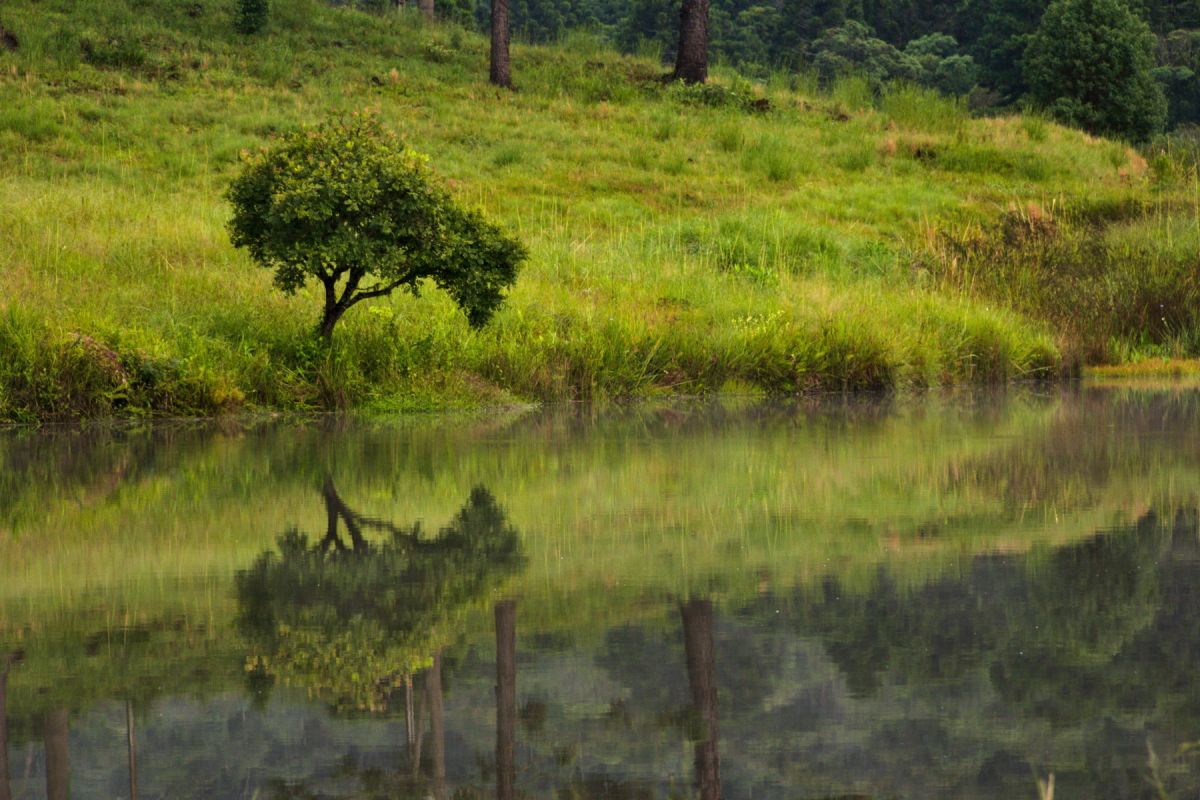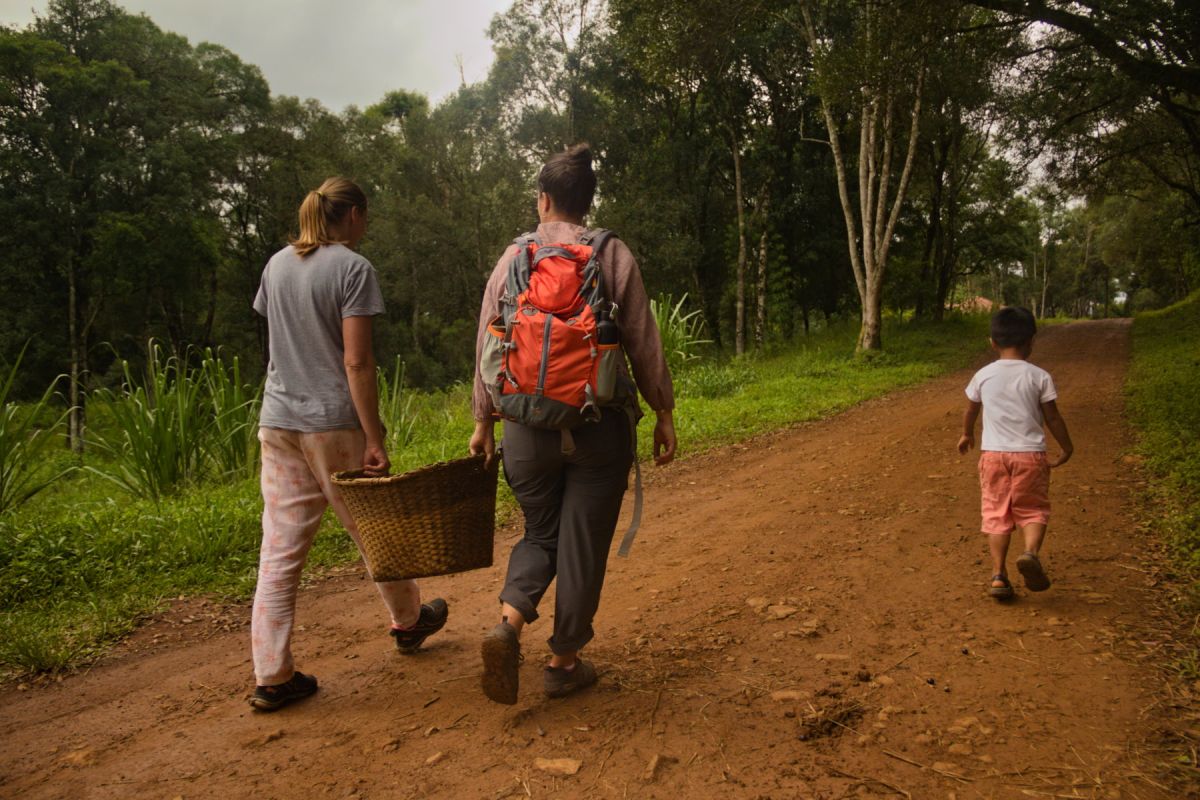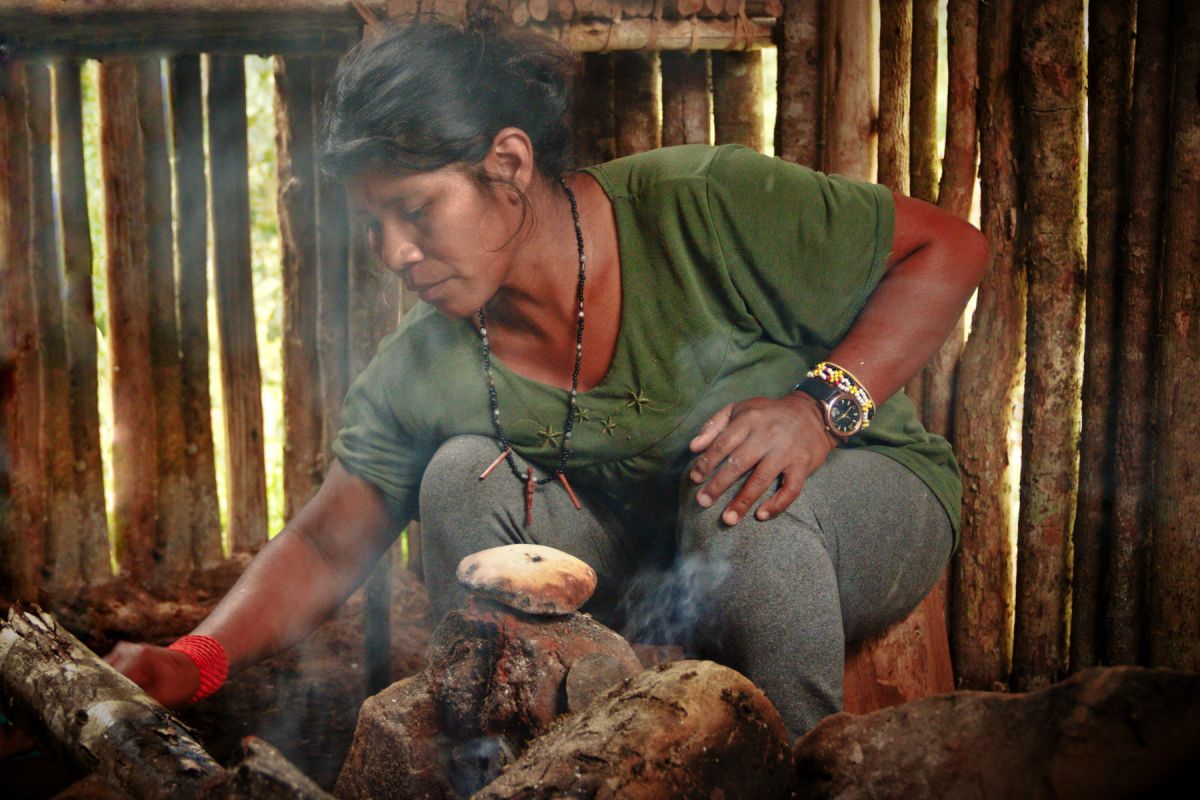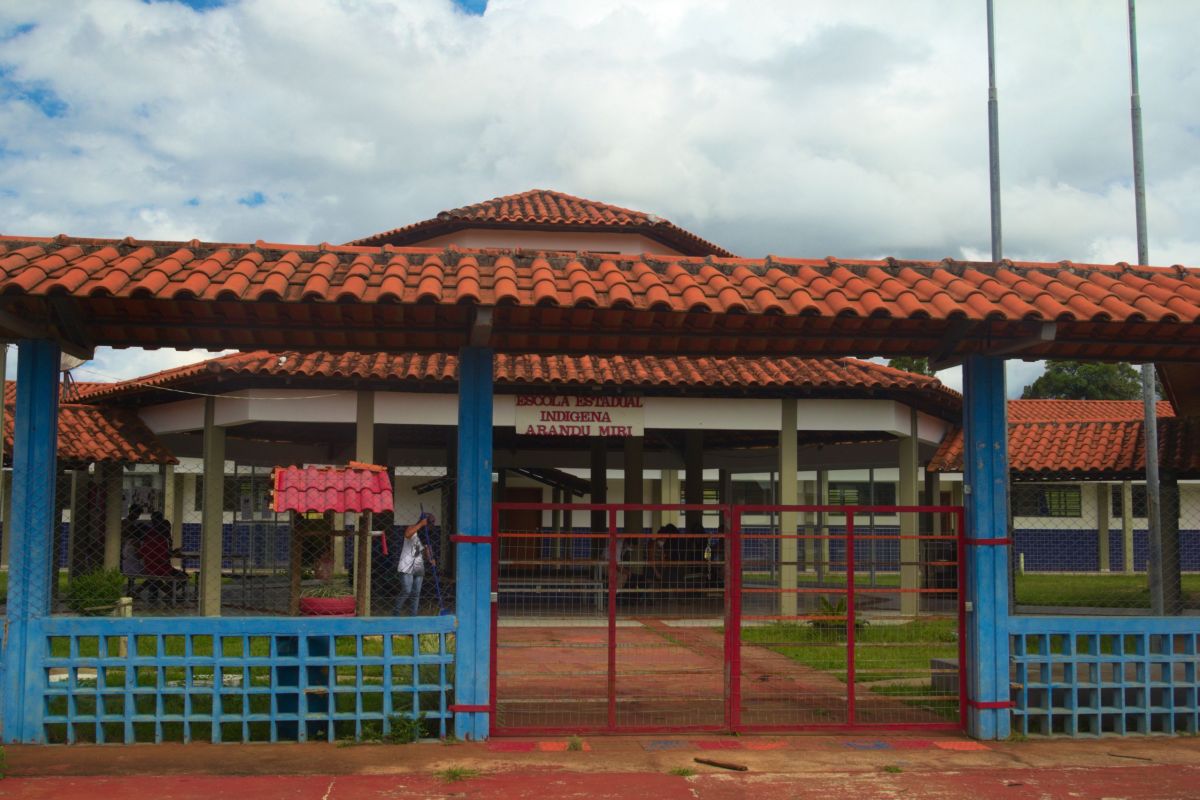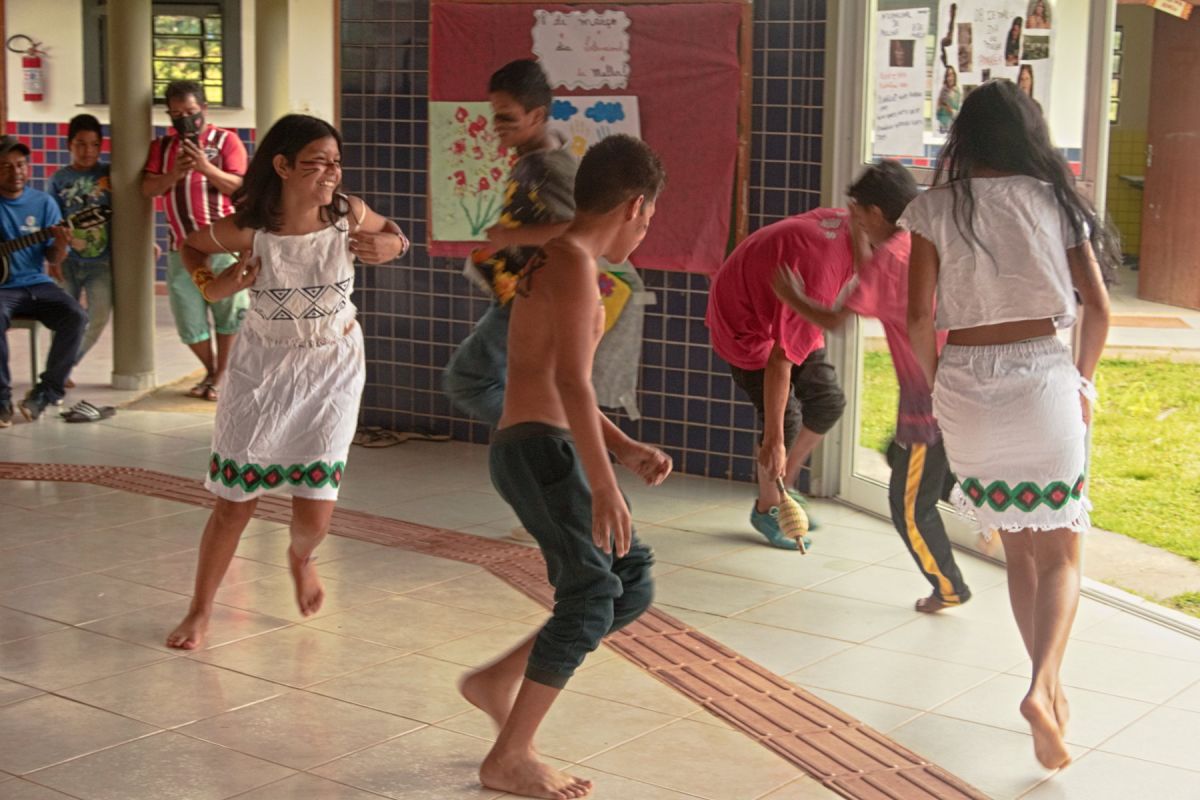After spending some days in Ocoy and Monjolinho Guarani communities, we went to visit Rio D’Areia community. Rio D’Areia is located near the homonymous river, 45 kilometers far away from the nearest city, Inácio Martins. Getting there makes you understand the real meaning of the word “isolation”. The unpaved road to get to the community crosses the woods going up and down the hills, putting any normal car (and the stomaches of its passengers too) to the test. But what you see at the end of the road, when you finally reach the community, is definitely worth the efforts: vast meadows surrounded by araucarias (the most iconic trees of Paraná), a little lake for fishing, and one, single, public phone, the only way to make and receive phone calls in Rio D’Areia.
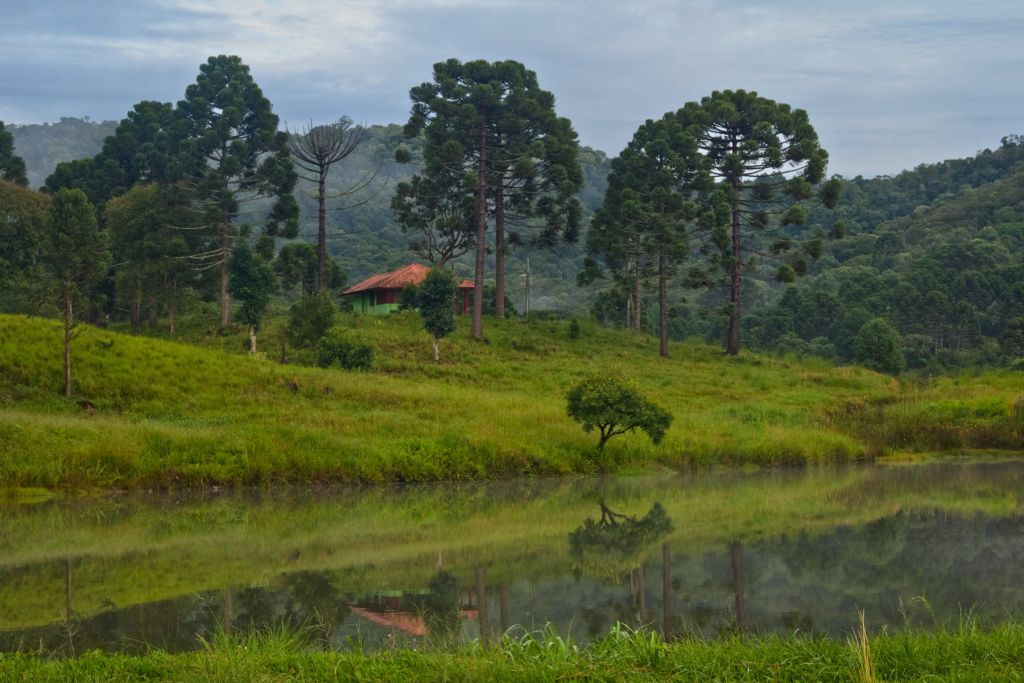
Leave this military hurry and adopt the pace of Nature. Her secret is patience.
We arrived there on a cold rainy day, and the landscape reminded me of the villages in the Alps. As if the land in Rio D’Areia wasn’t beautiful enough, there is also a wide waterfall to see: what we didn’t expect is that it is possible to cross the river by foot on the top edge of the waterfall, so three of us did it. Standing in the middle of the river, looking at a waterfall from above is a thrilling experience that I would really suggest to those who are brave enough to try! Apart from this excursion, the rest of the days we spent in the community gave us the opportunity to live according to the Guarani concept of time.
Daniel Papa Veríssimo, who lives in Rio D’Areia and volunteered in Italy in a EVS project coordinated by Associazione Joint in 2013, told us that Guarani people don’t count the hours: they follow the rhythm of nature and take their time for the daily activities so that the outcome of these activities is the best possible. Rush isn’t something they are used to, and once you get in the mood you realize why it’s hard to see stressed people in a Guarani community: I won’t lie, in the beginning, it might be hard for jurua kuery (Guarani term for non-indigenous people) not to have a schedule for activities, for eating, for sleeping, but in the end, it will show that is possible to live without constantly watching the clock.
Taking the time and going slowly, by the way, doesn’t mean doing nothing: in Rio D’Areia we went picking corn, we prepared food together, and we went to see an exhibition organized by the local school, where the kids sang, danced and played games of the Guarani heritage. The children in Rio D’Areia are full of energy and outgoing: on the first day, they invited us to play football with them, and we spent the whole afternoon under the rain having fun with them. This made me think about something pretty obvious but that I never considered: playing is one of the few activities that can bring people together overcoming any language obstacle.
Our accommodation for the night was in a building without electric light and window blinds. While this could be considered a major inconvenience if you were booking a room in a hotel, this allowed us to connect even more with nature and its times. In the night there wasn’t any noise from cars, people chatting outside the bars, or lights from the street like in a city: only the croaking of toads and frogs could be heard in the silence, and only the dim light of the moon entered through the windows. In the end, I still don’t know if it was because of the weather or else, but the feelings I had in Rio D’Areia were very different from those I had in Monjolinho and Ocoy: if in Ocoy I could feel the vibrant energy of the people, and in Monjolinho the warmth of the hospitality of the community, it is Rio D’Areia that made me reach a complete peace of mind and connection to the nature.



